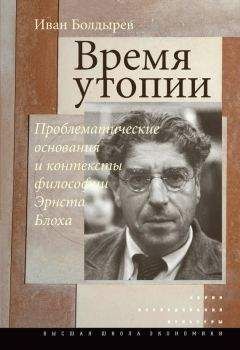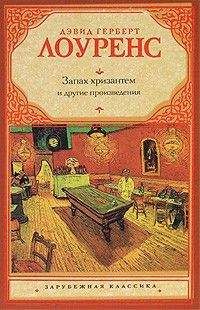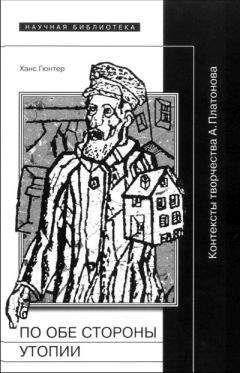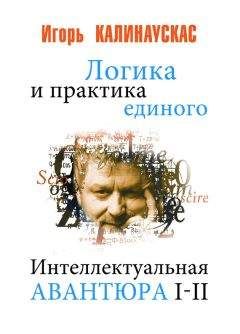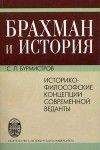Дэвид Лоуренс - Английский с Дэвидом Г. Лоуренсом. Тень в розовом саду / D. H. Lawrence. The Shadow in the Rose Garden
She shook it out. It was a long white stocking, but there was a little weight in the toe. Quickly, she thrust down her arm, wriggling her fingers into the toe of the stocking, and brought out a small box. She peeped inside the box, then hastily opened a door on her left hand, and went into the little, cold sitting-room. She had her lower lip caught earnestly between her teeth.
With a little flash of triumph, she lifted a pair of pearl ear-rings from the small box, and she went to the mirror. There, earnestly, she began to hook them through her ears, looking at herself sideways in the glass. Curiously concentrated and intent she seemed as she fingered the lobes of her ears, her head bent on one side.
Then the pearl ear-rings dangled under her rosy, small ears (и вот жемчужные серьги повисли под ее розовыми маленькими ушками; to dangle – свободно свисать, качаться). She shook her head sharply, to see the swing of the drops (она резко покачала головой, чтобы увидеть качание сережек; drop – капля; серьга; подвеска; висюлька). They went chill against her neck, in little, sharp touches (они бились холодно о шею = холодили шею легкими резкими касаниями; chill – холодный). Then she stood still to look at herself (потом она замерла, чтобы посмотреть на себя), bridling her head in the dignified fashion (горделиво подняв голову; to bridle – взнуздывать; обуздывать, сдерживать; задирать нос, важничать; bridle – узда, уздечка; dignified – обладающий чувством собственного достоинства; величественный, горделивый). Then she simpered at herself (затем она жеманно улыбнулась себе; to simper – жеманно, самодовольно или глупо улыбаться). Catching her own eye, she could not help winking at herself and laughing (поймав /в зеркале/ собственный взгляд, она не смогла удержаться и подмигнула себе, засмеялась; to catch smb.’s eye – поймать, привлечь чей-л. взгляд, привлечь внимание кого-л.; to catch – поймать; уловить; to help – помогать; избегать, удерживаться).
She turned to look at the box (она повернулась, чтобы посмотреть на коробочку). There was a scrap of paper with this posy (там лежал клочок бумаги с этим стишком; posy – маленький букет цветов; /уст./ девиз /на кольце, кулоне/; короткий стих):
“Pearls may be fair, but thou art fairer (жемчужины могут быть прекрасны, но ты прекраснее; thou art /уст., поэт./ = you are – ты есть).
Wear these for me, and I’ll love the wearer (носи их для меня, и я буду любить носящую /их/).”
Then the pearl ear-rings dangled under her rosy, small ears. She shook her head sharply, to see the swing of the drops. They went chill against her neck, in little, sharp touches. Then she stood still to look at herself, bridling her head in the dignified fashion. Then she simpered at herself. Catching her own eye, she could not help winking at herself and laughing.
She turned to look at the box. There was a scrap of paper with this posy:
“Pearls may be fair, but thou art fairer.
Wear these for me, and I’ll love the wearer.”
She made a grimace and a grin (она сделала гримасу = поморщилась и усмехнулась; grin – оскал зубов, усмешка). But she was drawn to the mirror again, to look at her ear-rings (но ее снова потянуло к зеркалу – посмотреть на свои серьги; to draw – тянуть/ся/, тащить/ся/; притягивать, привлекать).
Whiston had made the fire burn, so he came to look for her (Уистон уже развел огонь: «заставил огонь гореть», поэтому пошел ее искать; to make – делать; заставлять; приводить в какое-л. состояние). When she heard him, she started round quickly, guiltily (когда она услышала его, то вздрогнула и быстро повернулась с виноватым видом; guilt – вина). She was watching him with intent blue eyes when he appeared (она следила за ним = встретила его пристальными голубыми глазами, когда он появился).
He did not see much, in his morning-drowsy warmth (он не увидел много в своем сонном утреннем тепле = по-утреннему сонный, размягченный, он ничего не заметил). He gave her, as ever, a feeling of warmth and slowness (он, как всегда, принес ей ощущение тепла и неторопливости). His eyes were very blue, very kind, his manner simple (его глаза были очень голубые, очень добрые, его манеры простые; manner – метод, способ; манера, поведение).
“What ha’ you got?” he asked (что у тебя? – спросил он; ha’ = /диал./ have).
“Valentines,” she said briskly (поздравления на Валентинов день, – живо/проворно сказала она), ostentatiously turning to show him the silk handkerchief (хвастливо поворачиваясь, чтобы показать ему шелковый носовой платок; ostentatiously – напоказ, для виду; хвастливо). She thrust it under his nose (она сунула его ему под нос). “Smell how good,” she said (понюхай, как приятно /пахнет/, – сказала она).
She made a grimace and a grin. But she was drawn to the mirror again, to look at her ear-rings.
Whiston had made the fire burn, so he came to look for her. When she heard him, she started round quickly, guiltily. She was watching him with intent blue eyes when he appeared.
He did not see much, in his morning-drowsy warmth. He gave her, as ever, a feeling of warmth and slowness. His eyes were very blue, very kind, his manner simple.
“What ha’ you got?” he asked.
“Valentines,” she said briskly, ostentatiously turning to show him the silk handkerchief. She thrust it under his nose. “Smell how good,” she said.
“Who’s that from?” he replied, without smelling (от кого это? – спросил он, не понюхав; without – без; без того, чтобы; так, чтобы не).
“It’s a valentine,” she cried (это подарок на Валентинов день, – воскликнула она). “How da I know who it’s from (откуда мне знать, от кого это; da = do)?”
“I’ll bet you know (готов поспорить, ты знаешь; bet – пари; to bet – держать пари, биться об заклад; быть уверенным),” he said.
“Ted! – I don’t!” she cried, beginning to shake her head (Тед! не знаю! – воскликнула она, начиная мотать головой), then stopping because of the ear-rings (потом прекращая из-за серег).
He stood still a moment, displeased (он секунду стоял неподвижно, недовольный; moment – момент, миг, минута; to please – радовать, доставлять удовольствие; получать удовольствие).
“They’ve no right to send you valentines, now (теперь они не имеют права посылать тебе подарки на Валентинов день),” he said.
“Ted! – Why not (Тед! почему нет)? You’re not jealous, are you (ты ведь не ревнуешь, правда; jealous – ревнивый; ревнующий)? I haven’t the least idea who it’s from (у меня нет ни малейшего представления, от кого это; idea – мысль, идея; представление). Look – there’s my initial” – she pointed with an emphatic finger at the heliotrope embroidery (смотри – вот мой инициал, – она подчеркнуто указала пальцем на лиловую вышивку; emphatic – выразительный; подчеркнутый; настойчивый) —
“Who’s that from?” he replied, without smelling.
“It’s a valentine,” she cried. “How da I know who it’s from?”
“I’ll bet you know,” he said.
“Ted! – I don’t!” she cried, beginning to shake her head, then stopping because of the ear-rings.
He stood still a moment, displeased.
“They’ve no right to send you valentines, now,” he said.
“Ted! – Why not? You’re not jealous, are you? I haven’t the least idea who it’s from. Look – there’s my initial” – she pointed with an emphatic finger at the heliotrope embroidery —
“E for Elsie (Э – значит Элси),
Nice little gelsie (милая девчушка; gelsie = girlie – девчушка; girl – девочка; девушка),”
she sang (пропела она; to sing – петь).
“Get out (выкладывай; to get out – произнести, вымолвить /с трудом/; стать известным /о тайне/; раскрыть /правду/),” he said. “You know who it’s from (ты знаешь, от кого это).”
“Truth, I don’t,” she cried (правда не знаю, – воскликнула она).
He looked round, and saw the white stocking lying on a chair (он огляделся и увидел белый чулок, лежащий на стуле).
“Is this another (это еще один /подарок/)?” he said.
“No, that’s a sample (нет, это образец /из магазина/),” she said. “There’s only a comic (там только картинки; comic – юмористический журнал /особ. с комиксами/; комический, юмористический; comics – комиксы).” And she fetched in the long cartoon (и она принесла длинную открытку; to fetch – /сходить и/ принести).
He stretched it out and looked at it solemnly (он развернул ее и посмотрел на нее серьезно; to stretch – тянуть/ся/; растягивать/ся/).
“E for Elsie,
Nice little gelsie,”
she sang.
“Get out,” he said. “You know who it’s from.”
“Truth, I don’t,” she cried.
He looked round, and saw the white stocking lying on a chair.
“Is this another?” he said.
“No, that’s a sample,” she said. “There’s only a comic.” And she fetched in the long cartoon.
He stretched it out and looked at it solemnly.
“Fools!” he said, and went out of the room (дураки! – сказал он и вышел из комнаты; fool – дурак, глупец, болван).
She flew upstairs and took off the ear-rings (она взлетела по лестнице и сняла серьги; to fly – летать, лететь; нестись, мчаться). When she returned, he was crouched before the fire blowing the coals (когда она вернулась, он сидел на корточках перед камином, раздувая угли; to crouch – присесть, припасть к земле /чаще о животном/; to blow – дуть; раздувать; coal – /каменный/ уголь; coals – тлеющий уголь, уголек). The skin of his face was flushed, and slightly pitted (кожа его лица была красная и слегка покрыта ямками; to flush – вспыхнуть, покраснеть; раскраснеться; приливать /о крови, краске/; flush – внезапный прилив /жидкости/; прилив, приток крови /к лицу/; краска, румянец; pitted – изрытый, в ямах; покрытый впадинками; изрытый оспой; to pit – делать ямки; оставлять следы, отметины; pit – яма, ямка), as if he had had small-pox (словно он переболел оспой; pox – болезнь с высыпаниями на коже /напр., оспа/). But his neck was white and smooth and goodly (но его шея была белой, гладкой и красивой; goodly – красивый; хорошо выглядящий). She hung her arms round his neck as he crouched there, and clung to him (она обвила руками его шею, пока он там сидел, и прильнула к нему; to hang – вешать, подвешивать; висеть, свисать; to cling – прилипать; цепляться). He balanced on his toes (он балансировал на носках).
